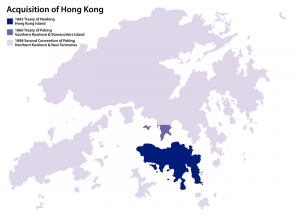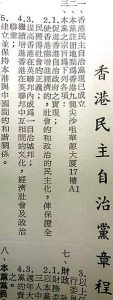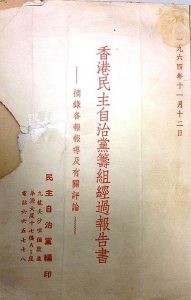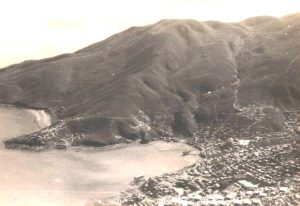Week 8: Cold War Harbor
The Young Plan
- July 1947 (officially shelved in 1952) . . .greater Chinese membership in the Legislative and Executive Councils . . . establishment of municipal council (2/3 elected) . . . localization . . . Grantham (1947–57): “. . . for Hong Kong can never become independent. Either it remains a British colony, or it is re-absorbed into China as part of the province of Kwangtung.” . . . Hong Kong Reform Club 香港革新會 / Hong Kong Chinese Reform Association 香港華人革新協會 (1949) / Democratic Self-Government Party of Hong Kong 香港民主自治黨 (1964)
Post-war Transformations
- Peak Ordinances (1904/1918) repealed . . . opium-smoking banned . . . minimum daily wage tripled . . . equal number of Chinese and European unofficial members in Executive Council . . .
Sino-British relations
- official recognition (January 1950) . . . “living on the edge of a volcano” . . . failed tramway strike (1949) . . . 1952 protests (1 dead, 100+ arrested, Ta Kung Pao temporarily shut down) . . . food and water from Guangdong
Cold War
Economic Impacts
- relocation of major firms (both expatriate and Chinese) from China . . . one million migrants (1946–mid 1950s) . . . pop. 2 millions (1950) . . . 2,5 millions (1955) . . . embargoes during the Korean War (1950–1953 . . . dried ducks) . . . industrialization (30%/1953; 70%/1959; textiles, clothing, plastic toys and flowers, flashlights and batteries, aluminum, enamel, and rattan ware, etc.) . . .
Society
- Shek Kip Mei Fire (24 December 1953) . . . 58,000 . . . public housing scheme (30%/1960s) . . . 120 sq ft (family of 5) . . . October 1956 riots (59 dead) . . . New Asia College (founded 1949 by Qian Mu [1895–1990]) . . . curriculum on Chinese culture (1953)
- What did Elsie Tu consider to be the most intractable problem in post-war Hong Kong? What accounted for the differences between Elsie Tu and people such as Robert Ho Tung in how they characterized Hong Kong society?
- In Ting's telling, what accounted for the economic boom in post-war Hong Kong? Based on what you have read for this class, is his a fair description?
- If Tu and Ting happened to be in the same room, what would they say to each other? Would they have a completely different understanding of the essential characteristics of Hong Kong's society?
Top




